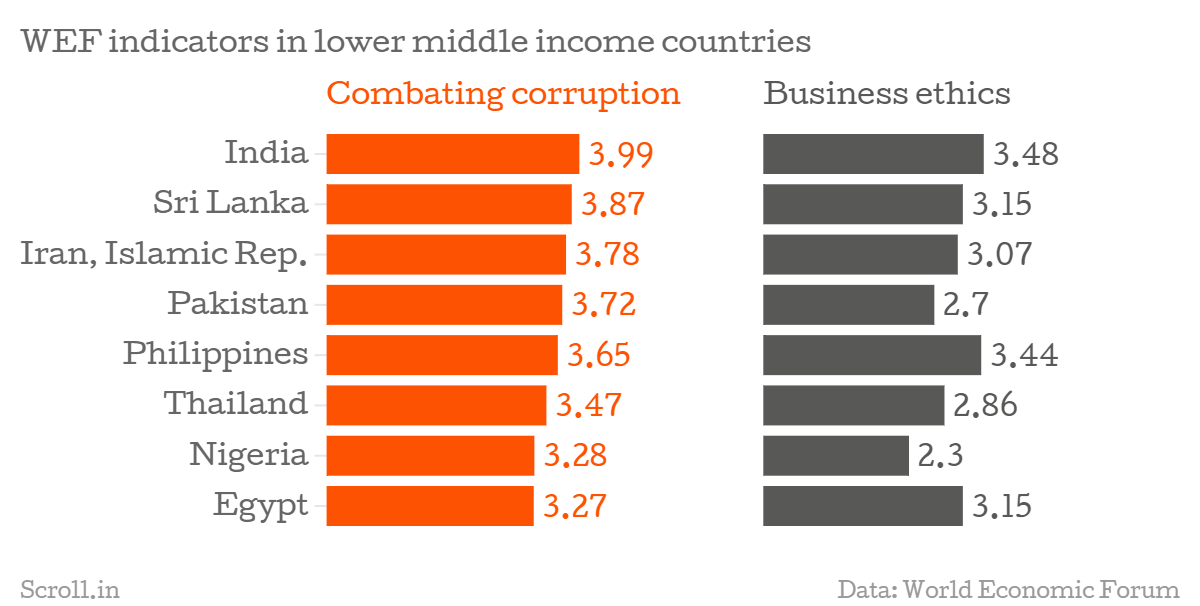If a pie gets bigger, will everyone get a larger share? This is the question that the world’s top economists are grappling with as income inequality rises across countries and even becomes a barrier to growth. According to the latest study by the World Economic Forum, the Swiss nonprofit that organises the annual Davos gathering, the rich are going to continue getting richer unless world leaders intervene.
According to a recent report by Oxfam, 85 of the world’s richest people own as much as the poorest half of the global population does. Then there’s the classic Bill Gates illustration that the multi-billionaire would need 218 years to exhaust his wealth if he were to spend one million dollars each day.
One strain of economic thought has always relied on the trickle-down theory, arguing that economic benefits provided to the rich or high income earners will help society as a whole, as their extra wealth or income will be invested or spent on the economy, creating jobs, wealth and income for the poor or lower income earners, but the WEF’s study concludes that this simply isn’t happening.
India, despite claims of its fast-growing economy, is a perfect example of this. The WEF study, conducted over two years, analysed more than 100 indicators across areas such as education, health and markets. The WEF summed up its findings with the unsurprising conclusion that all countries need to start with economic growth.
“While a growing national economic pie does not guarantee that the size of every household’s piece will be larger, such an outcome is arithmetically impossible unless the overall pie does indeed expand. Growth creates the possibility of a positive-sum game for society, even if it does not assure it.”
Here’s how India fared in some of the key areas.
Education: High on access, low on quality
While education is considered to be the primary driver of growth and increase in incomes, equity in access to all social groups remains a tough goal for developing countries such as India. In the lower middle income group, India scored 3.35 points on a scale of 1-7 with one being the worst and seven indicating the best performers.
Compared to countries in the same group, India was ahead of only Pakistan while countries like Indonesia, Egypt and Philippines did considerably better.

In access to education, India scored slightly higher with 3.79 points out of 7 while Sri Lanka was way ahead with a score of 5.01.
Quality of education in India was found to be worse than Indonesia, Sri Lanka and Philippines. Overall, India was ranked at 31 out of a selected group of 36 peer countries in ensuring education and skills for its citizens.
Paying the workforce
While Prime Minister Narendra Modi has launched his flagship Make In India programme to increase India’s competitiveness as a manufacturing hub, the report highlighted the country’s sub-par performance in generating productive employment and compensation standards for the workers.

Overall, India scored only 3.14 points out of seven under this head while Thailand, Philippines and even Sri Lanka raced past with scores of more than four.
When it comes to wage and non-wage compensation of employees, India had only 2.68 points as compared to Pakistan’s 2.59 while even Iran, Nigeria and Egypt fared much better.
India was ranked at a lowly 32 out of 36 nations considered under this head.
Income inequality
The Gini Coefficient is used to measure income inequality. When expressed as a percentage, the coefficient hovers between 0-100 with 0 suggesting everyone’s incomes are equally distributed and 100 signifying maximum inequality in a country where wealth is concentrated in fewer hands.
The WEF study took account of Gini indices under two heads which were pre-transfers and post-transfers. Simply put, the pre-transfers index is used to estimate inequality without factoring in subsidies and taxes, while the post-transfers index counts the two.
Among its peers, India had a relatively high rate of inequality according to the Gini coefficient which was 51.9% pre-transfers which slightly came down to 51.4% post-transfers.

To put this in context, smaller economies such as Armenia and Albania had a Gini coefficient closer to 35% signifying more evenly distributed incomes. Among India’s neighbours, even Pakistan, Egypt and Iran fared much better.
Overall, India was placed at a low 32nd place out of 34 nations considered under the same income group, according to its inequality indices.
Combating corruption
It is often hypothesised that big-ticket corruption often eats up the pie meant for the lowest rung in the economy, apart from making an economy unattractive for investment by businesses.
In this indicator, India had more good news than bad. Among the group of considered countries, India scored a good 3.99 points out of seven while nations like Indonesia, Pakistan and Thailand were ranked much lower.

In terms of business and political ethics, India was ranked at a good 12th place out of 38 countries while WEF ranked the country at the 8th position in overall response to combating corruption and ensuring ethical practices by companies.
Just 0.2% of readers pay for news. The others don’t care if it dies. You can help make a difference. Support independent journalism – join Scroll now.

Our coverage is independent because of readers like you. Pay to be a Scroll member and help us keep going.
